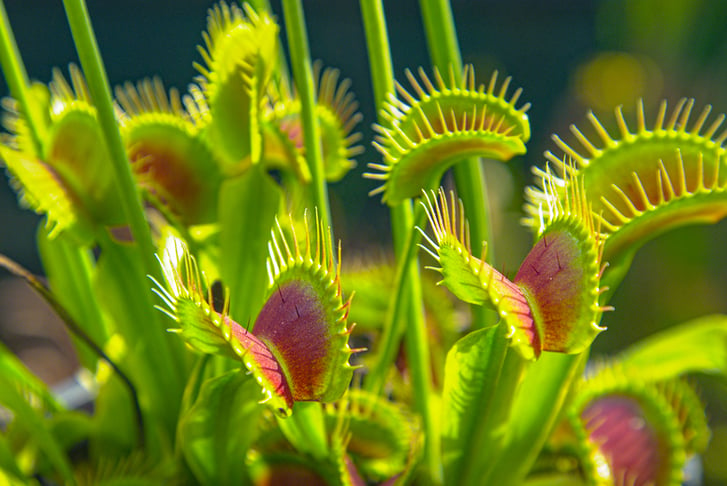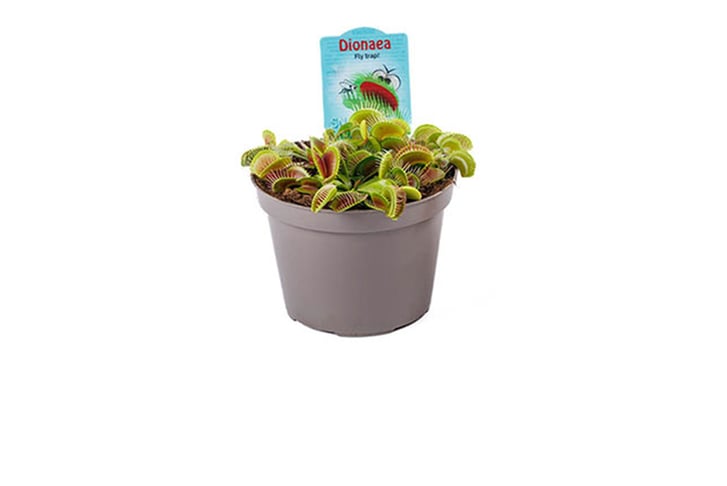A houseplant with a bite - literally!
We’re offering you a 12cm Venus Fly Trap Potted Plant for £13.99, saving you 36% off You Garden’s price of £21.98 (correct as of 12.3.25).
Discover the Venus Flytrap: Nature’s Insect-Eating Marvel
The Venus Flytrap (Dionaea muscipula) is a world-famous carnivorous perennial native to subtropical wetlands of the Carolinas, USA. Renowned for its jaw-like traps and rapid movement, this compact plant brings a touch of the wild into your home or classroom. Each trap snaps shut on unsuspecting insects, providing a natural pest solution and endless fascination.
Why Choose This Venus Flytrap?
- Authentic Carnivorous Action: Watch as sensitive trigger hairs cause the traps to close around flies and small insects.
- Perfect for Small Spaces: Its modest size (12cm pot; approx. 15cm width x 10cm height) fits neatly on windowsills, desks, or shelves.
- No Chemicals Needed: Naturally controls indoor pests—ideal for eco-friendly households.
- Educational Value: An engaging way to learn about plant biology, movement, and adaptation.
Caring for Your Venus Flytrap
- Light: Prefers bright, indirect sunlight—ideally a south-facing windowsill. Outdoors in summer is beneficial if protected from harsh midday sun.
- Water: Use only rainwater or distilled water. Keep the pot standing in a tray with 1–2.5cm of water; never allow the soil to dry out.
- Dormancy: In autumn/winter, the plant enters dormancy—reduce watering and move to a cool (but frost-free) spot. Old leaves may blacken; trim these away. Growth resumes in spring.
- No Fertiliser Needed: Do not fertilise—traps provide all necessary nutrients from insects.
- Avoid Feeding Meat: Only feed live insects if needed; never give processed food or fertiliser pellets.
Planting & Placement Tips
- Pots & Compost: Keep in original pot or repot using sphagnum moss or peat-based compost with no added nutrients.
- Humidity: Enjoys moderate humidity but adapts well to typical indoor conditions if watered correctly.
- Companion Plants: Groups well with other carnivorous species like Sarracenia (Pitcher Plants) or Drosera (Sundews) that enjoy similar wet, acidic conditions.
Your Questions Answered: Venus Flytrap FAQ
- Q: Why are some traps turning black?
A: Traps may turn black after catching prey or during dormancy—simply trim them off; new ones will grow in spring.
- Q: How often will it catch insects?
A: Each trap can close several times before becoming inactive. Place outdoors occasionally in summer for natural feeding.
- Q: Is it safe around children and pets?
A: Yes! The Venus Flytrap is non-toxic and safe, making it a fun educational plant for all ages.
Check out our other related deals:
Potted Plants
Bamboo Plants
Buddleia Plants
Garden Planters & Plant Pots
Garden Plants & Flowers 




